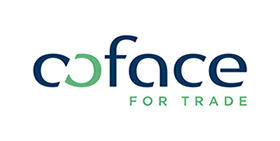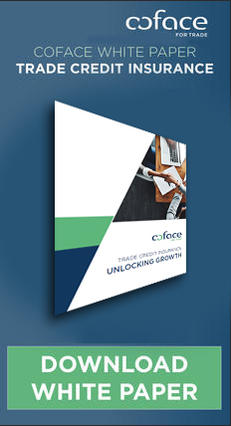New Report Finds a Strong Economic Recovery Requires a Healthy Trade Credit Insurance Industry

Report commissioned by leading trade credit insurers proposes government reinsurance policy to support U.S. economy
As economic uncertainty due to COVID-19 continues to impact businesses across the country, a new report commissioned by trade credit insurers Euler Hermes, Coface and Atradius found that a lack of support for the trade credit insurance (TCI) industry could disrupt the stability of millions of businesses across the U.S. The report, titled “A Strong Recovery Requires a Healthy Trade Credit Insurance Industry,” outlines the importance of trade credit insurance to the economy, the significant cutbacks in TCI coverage that the COVID pandemic has caused, and the reasons why government support for the TCI industry is vital to the continuity of economic activity. The report conservatively concludes that in the absence of a government response, the cutbacks in coverage will inhibit $46 billion in additional production and the creation of approximately 155,000 U.S. jobs at supplier firms, with additional effects on downstream buyers.
Euler Hermes, Coface and Atradius are the world’s three largest trade credit insurers, representing about 60% of the market in the U.S. Last month, the three companies formed a working group to educate the public and the U.S. government on the essential role trade credit insurance plays in supporting U.S. businesses and the economy at large.
Statement from James Daly, CEO of Euler Hermes North America, Oscar Villalonga, President and CEO at Coface North America, and Gordon Cessford, President and Regional Director for North America at Atradius:
It is not often that you see the main players in a single industry, typically competitors, come together for a common purpose of public interest. That purpose, we believe, is to provide an additional layer of economic security to the businesses that rely on credit insurance. We’ve come together to raise awareness about the important role our industry plays in the strength of the economy and in the hopes that we can work with the United States government, as other countries across the globe have, to ensure that trade credit insurance continues to deliver vital support to the American supply chain.
The Role of Trade Credit Insurance in the U.S. Economy
In the U.S., companies rely on trade credit insurance, which covers non-payment of accounts receivable, to support their trading operations. With $600 billion in business-to-business transactions covered each year, trade credit insurance plays a vital role in protecting businesses and jobs in times of crisis. Without this safety net, companies would not be able to sustain production levels or expand their sales, resulting in supply chain disruption and significant damage to the U.S. economy.
More than 60% of TCI customers in the U.S. are small- and medium-sized businesses, and TCI is an integral part of their credit management strategy. TCI customer Doug Konop, CFO at Pacific Northwest lumber wholesaler Specialty Forest Products, says: “I look at credit insurance as a strategic advantage, not only for our company but for our industry as a whole. Recovery is only going to go quicker if everyone extends more credit.”
Credit insurance also provides an important source of capital for businesses. Coverage from a well-rated credit insurer makes a business’s receivables more valuable. Banks will typically advance 70-80% toward domestic receivables. When covered by TCI, they will loan up to the 90% indemnity amount due to the carrier bearing the risk of the asset. On a million-dollar line of credit, this means a business has access to as much as $100K in additional working capital – funds that can make the difference between laying off workers or continued growth.
Proposing a Partnership with the U.S. Government
In the face of economic uncertainty, credit insurers are forced to scale down their coverage, notably in higher-risk sectors. This hinders the ability of TCI customers to safely offer credit terms or maintain adequate cash flows, significantly reducing liquidity in the U.S. supply chain. This is happening now, and the problem will only continue to compound, as the COVID pandemic has already forced the TCI industry to cut back its insurance coverage by 14% since year-end 2019.
With less TCI coverage, insured companies will be less likely to meet rising demands for their goods and services from buyers – manufacturers and retailers – as demand picks up. The report conservatively concludes that the TCI coverage cutbacks will inhibit $46 billion in additional production and the creation of approximately 155,000 jobs among supplier firms in the absence of a government response.
These adverse effects can be avoided. The report proposes a temporary government quota share reinsurance program, in which the U.S. government would partially share the non-payment risk of TCI customers with the TCI industry. Under the proposal, TCI insurers would continue marketing, undertaking and paying claims for TCI policies, but the government would reinsure a percentage of the losses from the risk of buyer non-payment. This type of program draws on best practices from similar approaches that have already been adopted or are under consideration in other G-7 countries.
For more information, the full report can be accessed here: https://www.econone.com
Contact
Annie Lorenzana
COMMUNICATIONS MANAGER
North America
MOB: +1 (407) 221-3496
Annie.Lorenzana@coface.com








